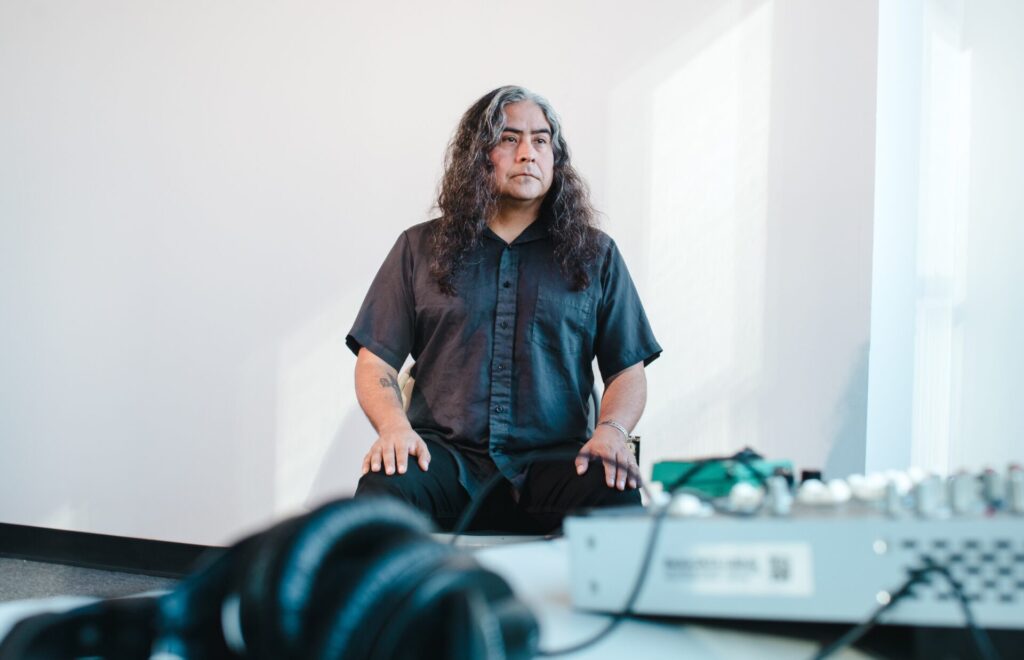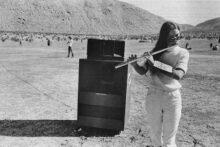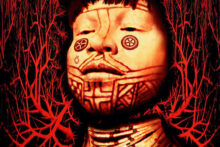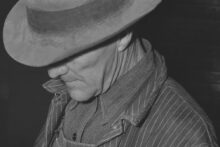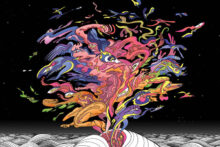“I was thinking about the frustration towards political systems that we all are having today,” says Diné/ Navajo musician and Pulitzer Prize-winning composer Raven Chacon, speaking about his curation of the third edition of Edinburgh new music festival Deep Time. “In the States, we’re at a point of having to take real action against our own government and our own president. Immigration policies have been amplified to a degree that I have not seen before. So I wanted to invite musicians who are loud and express urgency within their music.”
Titled I See Red, this edition of the festival sees seven artists from Lebanon, the USA, the UK and Canada come together at Edinburgh’s Fruitmarket Gallery in November 2025 for a series of new commissions, collaborations and premieres, in response to international crises of ecological and civil concern. “Everybody’s bringing something very unique,” promises Chacon.
The festival opens with a performance from New York-based Australian artist Charmaine Lee, who manipulates her voice into an instrument of pure noise. She will also present a brand new work with Scottish musician Brìghde Chaimbeul who is known for her experimental approach to the Scottish smallpipes, informed by both traditional Gaelic and international traditions. In their own unique ways, both artists speak to the festival programme’s focus on loud noises; the “collision of sounds” that Chacon recognises from spaces of unrest and resistance. “Calls for action, calls of retreat, drones in the sky, people who are singing as resistance and the ongoing sonic presence of the police. None of this happens in in a silent environment.”
Berlin-based Lebanese musician and comics artist Mazen Kerbaj is set to perform the UK premiere of his piece With A Little Help From My Friends II: From One War To Another. “I became aware of his work because I had seen a performance where he is making sounds on the trumpet that sound like sirens,” remembers Chacon. The piece sees him pair trumpet with an adapted crackle synth, a rudimentary portable noise maker, and examines voyeurism of both the 2006 Lebanon war and the ongoing Israeli war on Palestine. “I especially wanted to bring him because of his very strong political voice,” says Chacon.
Artists and musicians Laima Leyton and Iggor Cavalera will also bring a new piece to the festival. “Iggor is notable for being a drummer and founding member of Sepultura, who I was a huge fan of as a young person,” says Chacon, who has been collaborating with the duo for some time, most recently at the 2025 Bienal de São Paulo. “They’re gonna have a very dynamic presentation of multiple drums, video, maybe a multi-site performance as well.”
The festival title I See Red comes from a series of paintings by the late Native American artist and curator Jaune Quick-to-See Smith. “Jaune is an artist who I had learned about as a young person when I was studying art,” says Chacon, “She also lived half a mile away from where I grew up, and without me knowing I had been playing in a band with her son [Neal Ambrose-Smith] for a year or two before I realised Jaune was his mother.” The festival theme takes inspiration from her mixed-media paintings – “fires to be lit or extinguished” – which blend Indigenous imagery with a critical take on American pop iconography, and which will be displayed in the gallery during the festival.
Like Quick-to-See Smith, Chacon’s own work engages with the language of American art and tradition in order to critique American imperialism. The 2025 edition of Deep Time was preceded by an Edinburgh performance of his Pulitzer Prize-winning composition Voiceless Mass, commissioned in 2021 by Conference of the United Church of Christ, Plymouth Church UCC, and Present Music, composed specifically for the Nichols & Simpson organ at the Cathedral of St. John the Evangelist in Milwaukee. ”It was an opportunity to talk about the institution of the Christian church,” Chacon says of the work. “To talk about its role in the history of colonisation, the loss of indigenous languages, and also the abuse that has happened to not only young indigenous people in the Americas, but all over the world. I wanted to write it in the style of church music, and to use the instrument of the church – the organ – to do this.” Played on the organ with a large orchestral ensemble, its absence of the human voice illuminates the futility of giving voice to the voiceless within historical spaces of power – a remarkably honest work amongst platitudes about art uniting us in times of crisis.
The piece was performed this August at St. Giles Cathedral as part of the Edinburgh Art Festival, with members of the Scottish Ensemble positioned at different points in the church. The music is enveloping, and at times extraordinarily loud and cathartic – but the organ hums like a warning, omnipresent drone throughout. One of Chacon’s many site-specific works, it may have originally been written to be played in a cathedral in Milwaukee, but the Pulitzer win for composition has allowed him to tour the work to more and more churches. “As it gets transposed to different churches, it becomes an opportunity to share its history with people who might not be aware, including parishioners of the churches,” says Chacon. Discussions and lectures have been programmed around the performances, and Chacon – who has a background in noise rock and metal – was even asked to perform a “noise sermon” in a California church. “People walked out!” he laughs. “I appreciate [these discussions] though. The piece was not to just accuse and leave it there. There was an opportunity for reconciliation through a piece of music. I’m really happy that a work of mine was able to contribute to that.”
In addition to curating Deep Time: I See Red, Chacon is also set to perform twice – providing the opening and closing performances. One of the pieces he’s considering playing is Dispatch, a collaborative work made with his wife, the writer and curator Candice Hopkins, who will also moderate two Q&A sessions at the festival. Written during lockdown as a conceptual score, the work is a response to Chacon’s experience at the 2016 Dakota Access Pipeline protests at Standing Rock. “I was making field recordings and I was thinking about how all of us were trying to decode all of the sounds we were hearing,” he explains. “The score asks us to ask questions of ourselves, to use as prompts, to try to to decode situations where we gather to protest, or do other direct action. What do we hear in those places? How do we understand the role of artists in those places? Are there undercover cops? Is there communication, radio, digital transmission, texting, other kinds of sonic weapons? Is music involved or not?” The score can be interpreted by all kinds of “instruments and bodies”, and – like Voiceless Mass – adapted to any place where it is needed. “I sometimes say that it is a critique of the privilege of deep listening, but I think it’s still in line with Pauline Oliveros‘ hopes – that ultimately we are listening to what the land needs.”
Although many of Chacon’s works speak to the specificities of the USA, applying them to different places, landscapes and communities is an opportunity to deepen their meaning and engage with new contexts. It’s the same for Deep Time – the works presented at the festival may have been written with other conflicts, crises and sites of resistance in mind, but by bringing them to Scotland, they become applied to new contexts, specific to the country and its artistic and activist communities. “It’s a challenge to bring these pieces to different places,” Chacon concludes. “But for me, that can become a learning experience towards the understanding of why we are bringing them to a new place. It’s showing that all of us around the world have very similar histories that we are trying to resolve.”
Deep Time: I See Red runs between 27 and 29 November at the Fruitmarket, Edinburgh

